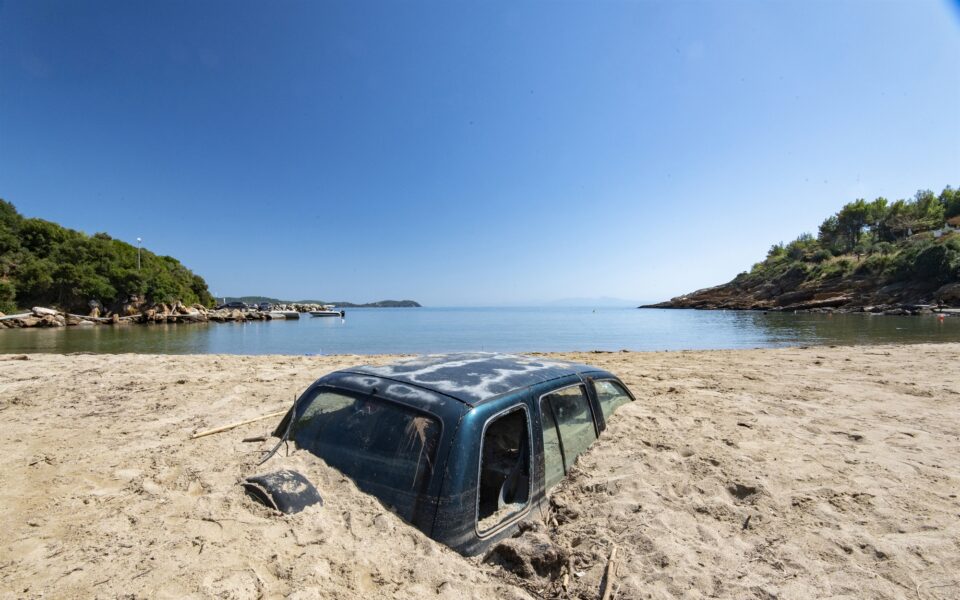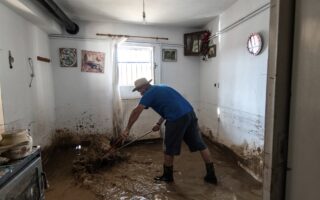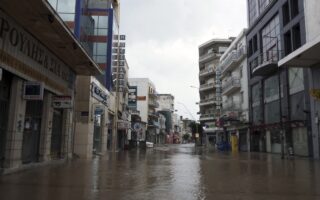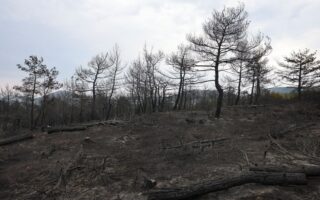The great flood

Did it surprise us? Yes. Was it unexpected? No. It was not just the big picture that was known to us: The climate crisis is spreading, with a 66% chance we are going to exceed the limit of 1.5 degrees Celsius above pre-industrial levels; we managed to weaken the Gulf Stream in the Atlantic; this year it was the hottest summer on record; the Mediterranean is a global warming hotspot; extreme weather events are intensifying and feeding each other, heatwaves and mega-fires are followed by the wildest storms and floods; weather phenomena that used to happen every 500 or 1,000 years are now happening every year or two. The world’s new normal is extreme weather. We all knew it.
What we also knew was the dangers that threaten Greece in particular. The researchers of the Academy of Athens, the interdisciplinary Climate Change Impacts Study Committee (CCISC) of the Bank of Greece, the scientific team of the DiaNEOsis think tank led by Kostantinos Kartalis, and many others, had analyzed and warned about what we are experiencing today in a timely manner, and with valid documentation.
But it’s not just the studies that set off all the alarm bells. It was also what we have been experiencing in recent years: from the drought and the devastating fires of 2007 and 2021 to the destructive storms Medea, Ianos and the floods on Crete last year (where in 10 minutes the ground received the rain it normally receives in three to four years). Nature had warned us.
But would it be possible for 600 tons of water to fall across 1,000 square meters and not cause a flood? Obviously not. But that’s not the point – and it’s no use resorting to straw man arguments. The point is that we have not even begun to prepare to deal with such phenomena; that we have shown complete inaction despite the warnings by everyone and nature itself. It is the general reluctance to see the problem in its true dimensions, and the strong tendency of the political system to shut its eyes, which means that we are marching in the wrong direction. How, indeed, can we otherwise explain the fact that just 10 days ago, before we had even put out the forest fires, the cabinet decided to bring to Parliament a bill that facilitates construction outside zoning areas?
It is the general reluctance to see the problem in its true dimensions, and the strong tendency of the political system to shut its eyes, which means that we are marching in the wrong direction
We are experiencing difficult days and those that are to come will be socially and politically very tough. There are questions that have been raised in the public debate about the current management of the situation: for example, why were residents not notified to evacuate the villages that were certain to be flooded when the magnitude of the threat was foreseeable?
There are also questions about the flood control projects and residential construction that was carried out on the Thessaly Plain after the floods caused by storm Ianos three years ago. How can it be explained, for example, that newly built bridges collapsed? What kind of studies, specifications and procedures were used to build them?
There is another, major issue, that should not be lost in the greater tension that will reasonably prevail in the coming days: We need to decide to rebuild the infrastructure of our country so as to make it resistant to the climate crisis. Even the best of it was built to specifications that do not correspond to climate crisis conditions that will exist 20-30 years after greenhouse gas emissions cease.
Right now, our services must become capable of preventing fires by doing the work required in the winter – caring for forests, clearing them, opening forest roads and fire zones. Roads, bridges and ports have to withstand severe storms. The anti-flood works should be adapted to accommodate larger amounts of water, as currently they can’t. We will soon see this in the suburbs around Mount Penteli. Power grids should be enlarged and strengthened so that they do not cause fires, or be destroyed by storms. We have before us a titanic task of rebuilding Greece’s infrastructure. We owe it to our children.





